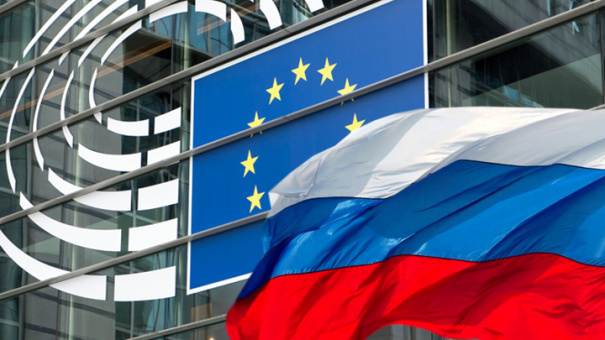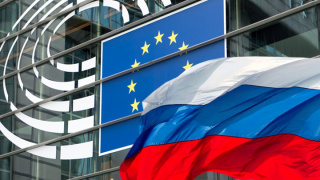Russia returns to PACE
Nearly nine hours in the Parliamentary Assembly of the Council of Europe continued stormy discussions of the resolution, according to which the Assembly Regulations are amended, closing the possibility of depriving any delegation of the right to vote. The report of the head of the PACE Regulatory Committee, Petra de Sutter, contained the most important point - to enable delegations currently not represented in PACE (apart from Russia, this is Bosnia and Herzegovina) to apply for participation in the June session.
That is, today, on June 25, the Russian delegation will take part in the work of the Assembly, and the next day the elections of the Secretary General of the organization will take place, which will have to assume this position instead of Thorbjørn Jagland already this fall. Russian parliamentarians will become full voting members. Otherwise or under any other restrictions on the rights of members of our delegation, Russia reserves the right to leave the assembly. The reservation is, in fact, important, since the adopted document leaves room for challenging the rights of delegations.
118 parliamentarians voted in favor of the resolution, 62 against and 10 abstentions. However, our country's return to PACE is being surrounded even by some of its supporters as a chance to once again “ask from Russia” and the opportunity for 140 million of its citizens to remain under the protection of the ECHR. Polish MP Alexander Posiezh said that for non-democratic countries, access to the institutions of the Council of Europe is a “priceless good.”
Nevertheless, the issue under discussion divided the European People’s Party, the largest parliamentary group in PACE, into two parts. Faction members did not form a common opinion.
The most neutral argument in favor of the return of Russia to PACE came from the Dutch deputy Tini Cox, who heads the organization of the group of united European left. He noted that the decision will ensure equal participation of the members of the Council of Europe, calling it a "formal action."
However, even such a formulation could not suit the opponents of the adoption of the resolution, among which there were representatives of Ukraine, Great Britain and the Baltic countries. They tried to prove that the price of the restoration of the rights of the Russian delegation was too high.
The Ukrainian deputy Alexei Goncharenko was generally hysterical during the speech of the Serbian politician Alexander Seselj. The representative of Belgrade spoke in Russian, noting that the main enemy of Europe is fascism, and it was Russia that once saved everyone from him. He stressed that during those five years, while Moscow was deprived of rights in PACE, “undemocratic decisions” were taken, and now they are being restored solely because of finances, and not because they want to take care of the citizens of Russia.
After that, Seselj came on the sore spot of the Ukrainian delegation. He said that the residents of Crimea joined Russia, because they did not want a repetition of what happened in Odessa in the House of Trade Unions. Goncharenko began to interrupt the speaker and shout at the whole hall. PACE's President Pasquier Lilian Mori had to pacify the Ukrainian deputy. Serbian politician was able to finish his speech.
The debate was closed by the author of the report Petra de Sutter. She stressed that she was not going to defend “all the bad things that are said about Russia,” but suggested that members of the assembly look at the situation from the other side, because in five years the sanctions did not change anything at all. According to her, Russia has the right to speak, and the Council of Europe, and this does not mean at all that the organization is surrendering to Russia or giving in to blackmail.
Before making a decision, the Assembly had to consider more than 200 amendments, the overwhelming majority of which were purely technical and were proposed with the sole purpose of delaying the discussion. PACE's President Lilian Marie Pasquier also drew attention to this, and while voicing some amendments, she herself could not hold back a smile.
It is known that the Russian delegation went to Strasbourg even before the results of voting on the resolution became known. According to preliminary information, it consists of seven senators and eleven deputies. The vice-speaker of the State Duma, Peter Tolstoy, who heads the delegation, has already stated that on Tuesday Russia is submitting an application to confirm its authority in PACE.

